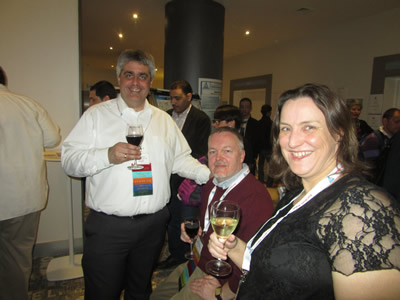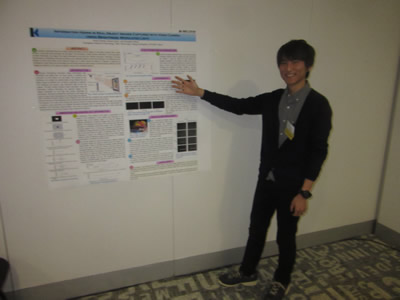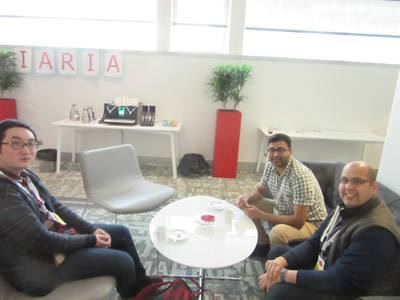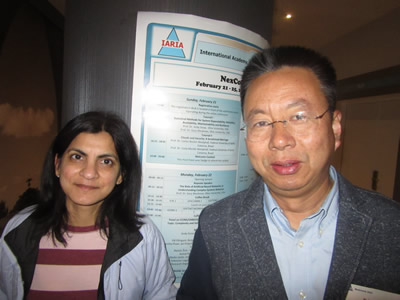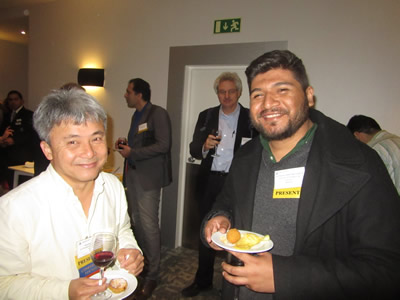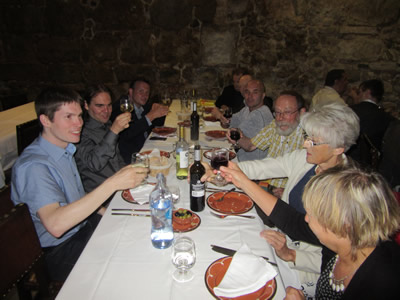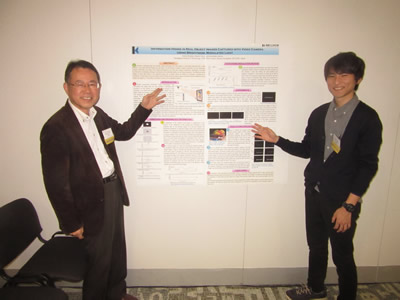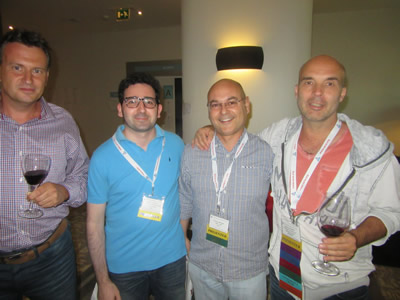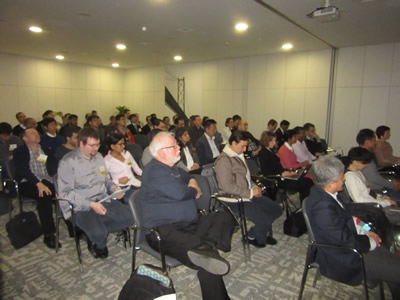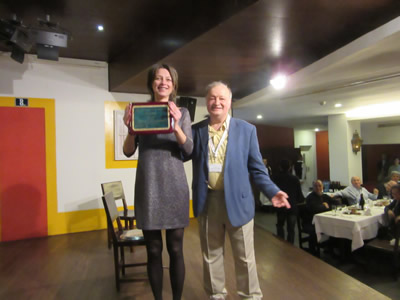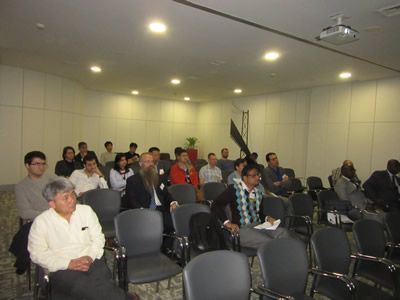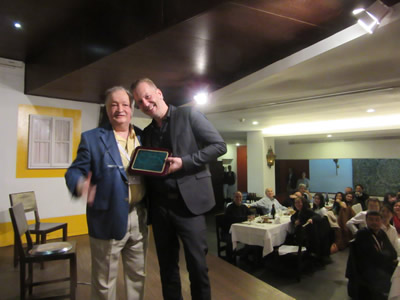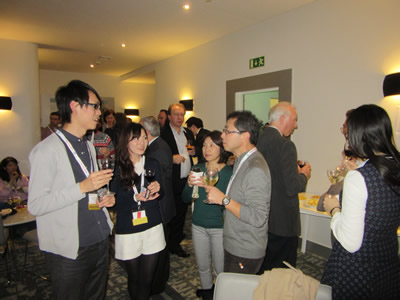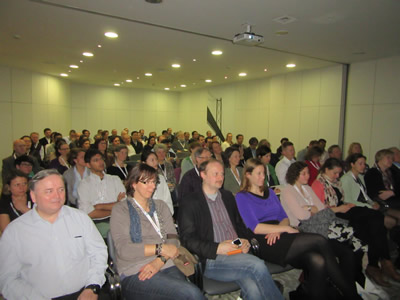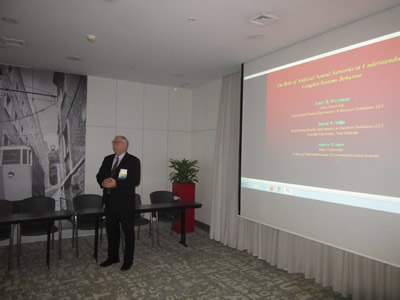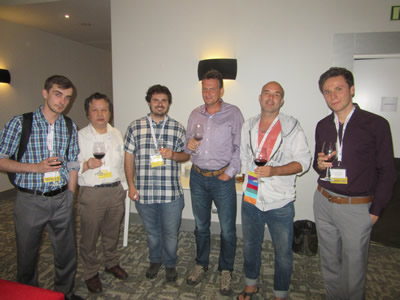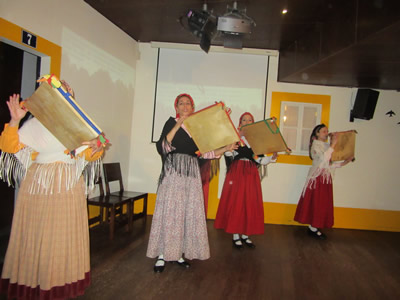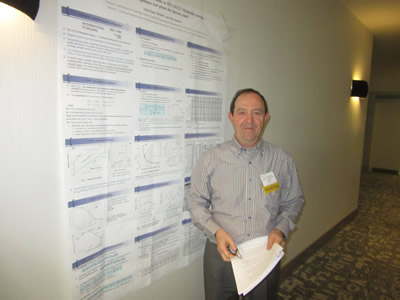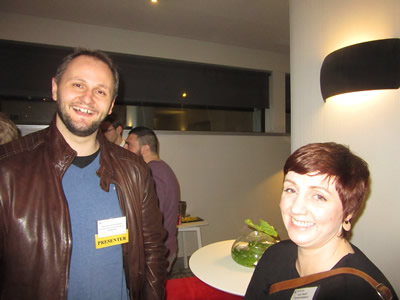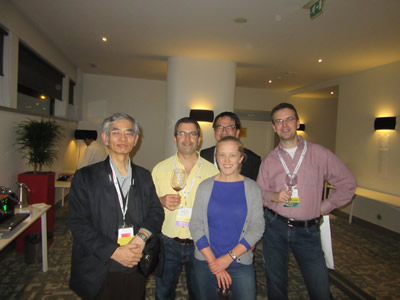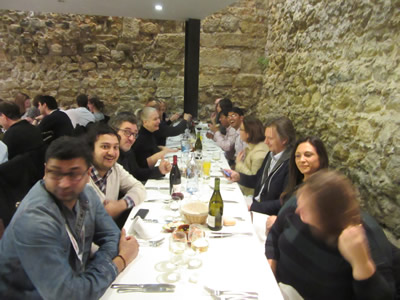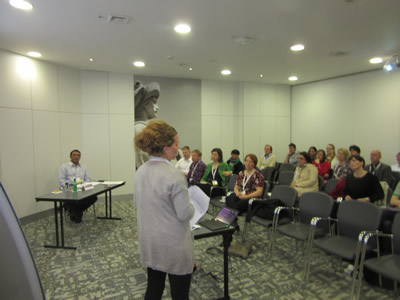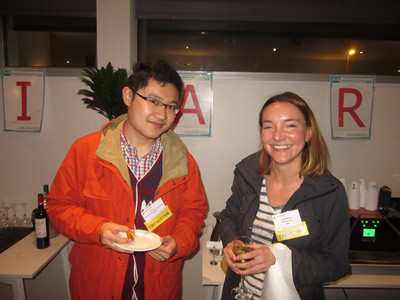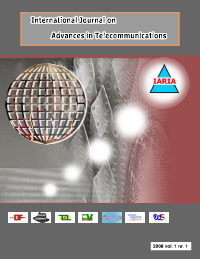PESARO 2020 - The Tenth International Conference on Performance, Safety and Robustness in Complex Systems and Applications
February 23, 2020 - February 27, 2020
PESARO 2020: Call for Papers
There is a relation between organizational, design and operational complexity of organization and systems and the degree of robustness and safety under given performance metrics. More complex systems and applications might not be necessarily more profitable, but are less robust. There are trade-offs involved in designing and deploying distributed systems. Some designing technologies have a positive influence on safety and robustness, even operational performance is not optimized. Under constantly changing system infrastructure and user behaviors and needs, there is a challenge in designing complex systems and applications with a required level of performance, safety and robustness.
PESARO 2020 continues the a series of events dedicated to fundamentals, techniques and experiments to specify, design, and deploy systems and applications under given constraints on performance, safety and robustness.
We solicit both academic, research, and industrial contributions. We welcome technical papers presenting research and practical results, position papers addressing the pros and cons of specific proposals, such as those being discussed in the standard fora or in industry consortia, survey papers addressing the key problems and solutions on any of the above topics short papers on work in progress, and panel proposals.
Industrial presentations are not subject to the format and content constraints of regular submissions. We expect short and long presentations that express industrial position and status.
Tutorials on specific related topics and panels on challenging areas are encouraged.
The topics suggested by the conference can be discussed in term of concepts, state of the art, research, standards, implementations, running experiments, applications, and industrial case studies. Authors are invited to submit complete unpublished papers, which are not under review in any other conference or journal in the following, but not limited to, topic areas.
All topics and submission formats are open to both research and industry contributions.
PESARO 2020 conference tracks:
Fundamentals and metrics
Fundamentals on system safety; Robustness technology and evaluation; Metrics for risk assessment; Performance-oriented design; Safety-oriented system design; Performance metrics and dependable metrics; Active and passive safety; Performance warning delay
Methodologies, techniques and algorithms
Systems modeling; Hazard analysis; System measurement and monitoring; Evaluation of safety data, and mitigation and prevention strategies; Model verification and validation; Fault-tolerant systems; Simulation, statistical analysis, and experimental design analysis; Language and run-time systems
Systems performance and performance evaluation
Performance basics; Performance-oriented design; Performance methodology techniques and algorithms for analytic modeling; System measurement and monitoring; Model verification and validation, simulation, statistical analysis; Experimental design, and reliability analysis; Performance evaluation of various technologies and systems (mobile devices and wireless networks, distributed and parallel systems, file and storage systems, power management, database systems, computer networks and architectures, operating systems, fault-tolerant systems, and language and runtime systems). Performance in dedicated service systems (Web services, Financial services, Healthcare and pharmaceuticals, Telecommunications services, Industrial Manufacturing, Education services, Transportation services, Energy and utilities)
Safety in transportation systems
Advanced vehicle safety systems; Predictive computation for driver assistance; Advanced driver assistance systems; Vision-based driver assistance systems; Estimation of driver intention; Detecting driver distraction; Automatic emergency steering systems; Systems for positioning multiple maps for self-driving car's autonomous navigation; Models for selecting an evacuation route; Safety in electric vehicles; Safety of traction power supply system in electrified railways; Automation systems mainline railways; Emergency vehicle management; Vulnerability of ambulance response; Intelligent logistics and multimodal transport systems; Connected vehicle wireless systems; Design of railway freight business process; Traffic monitoring and redirecting systems; Monitoring heavy goods vehicles; Speed transition zone control in small, rural communities; Spatial and temporal analysis of planned road Infrastructure and traffic in large cities; Transit signal priority strategies; Rural school bus routing safety problem; Large-scale dynamic traffic control systems; Development and analysis of bicycle collision avoidance systems; Dynamic car route planning; Near-optimal train scheduling and routing; Optimal dynamic lane reversal systems for autonomous vehicles; Speed limit sign recognition systems; Fast pedestrian detection for mobile devices; Pedestrian guidance systems for public transportation users; Systems for assessment and signalling dangerous transportation; Traffic safety based on speed profiles.
Safety in industrial systems
Fundamentals on system safety; Safety of software systems and software engineering; Safety requirements; Safety for critical systems; Engineering for system robustness and reliability; Control of mission critical systems; Safety-oriented system design; Human tasks and error models; Hazard analysis; Cost and effectiveness of system safety; Verification and validation of safety; Safety tools; Evaluation of safety data, and mitigation and prevention strategies; Safety control and management; System Safety Implementation Guidelines and Standards; Transferring safety knowledge; Metrics for Risk Assessment; Contingency Planning and Occurrence Reporting; Preparedness Activities; Industry specific safety systems (Medical devices, Aerospace, Chemical industry, Nuclear power plants, Public health, Biological Safety)
Robustness
Robustness concepts and applications; Theory and mechanisms for robustness; Uncertainty and robustness; Statistic robustness; Computation and optimization of robustness; Robustness estimation and approximation; Robustness correction; Robust systems; Robustness tests and benchmarking; Robustness and performance; Robustness and safety; Robustness of self-adapting production lines; Situation-awareness and self-awareness
Systems risks
Identify and weight risks; Risk management systems; Risks in industrial systems; Risks in information-sharing systems; Limits in risks models; Systems risk evaluating (military, economic, judicial, etc.); Knowledge for risk-aware systems; Proactive and reactive alarm processing; Weak signals and big data; Risks of atmospheric surveillance systems; Risks in health systems; Earthquake systems; Radio-protection and nuclear risks; Risks in avionic and transportation systems; Lessons learned from accidents, crises and false alarms
Applications and services
Mobile Web performance; Multiple data center management; Network latency and impact on performance/robustness; Performance and robustness of cloud-based solutions; Scalable safe and robust solutions; Mobile devices and wireless networks; Mission critical systems and applications; Industry specific safety systems (medical devices, aerospace, chemical industry, nuclear power plants, public health, biological systems)
Deadlines:
Submission | Nov 12, 2019 |
Notification | Dec 13, 2019 |
Registration | Dec 27, 2019 |
Camera ready | Jan 09, 2020 |
Deadlines differ for special tracks. Please consult the conference home page for special tracks Call for Papers (if any).
INSTRUCTION FOR THE AUTHORS
Authors of selected papers will be invited to submit extended versions to one of the IARIA Journals.
Publisher: XPS (Xpert Publishing Services)
Archived: ThinkMindTM Digital Library (free access)
Prints available at Curran Associates, Inc.
How to submit to appropriate indexes.
Only .pdf or .doc files will be accepted for paper submission. All received submissions will be acknowledged via an automated system.
Contribution types
- regular papers [in the proceedings, digital library]
- short papers (work in progress) [in the proceedings, digital library]
- ideas: two pages [in the proceedings, digital library]
- extended abstracts: two pages [in the proceedings, digital library]
- posters: two pages [in the proceedings, digital library]
- posters: slide only [slide-deck posted on www.iaria.org]
- presentations: slide only [slide-deck posted on www.iaria.org]
- demos: two pages [posted on www.iaria.org]
FORMATS
Only .pdf or .doc files will be accepted for paper submission. All received submissions will be acknowledged via an automated system.
Final author manuscripts will be 8.5" x 11", not exceeding 6 pages; max 4 extra pages allowed at additional cost.
Helpful information for paper formatting for MS Word can be found here.
There is a community provided LaTeX template: the CTAN package iaria (with full IARIA formatting rules, including IARIA citation style, but for providing citation style it is tightly bound to pdflatex+biblatex+biber). In addition, there is also iaria-lite (not bound to pdflatex+biblatex+biber, but compatible with any TeX stack; thus, it cannot provide the IARIA citation formattings, but only the titlepage and content-related IARIA formatting rules). Based on the iaria package, there is a minimal working example as Overleaf template. When you are using the LaTeX templates, please still adhere to the additional editorial rules.
Slides-based contributions can use the corporate/university format and style.
Your paper should also comply with the additional editorial rules.
Once you receive the notification of contribution acceptance, you will be provided by the publisher an online author kit with all the steps an author needs to follow to submit the final version. The author kits URL will be included in the letter of acceptance.
We would recommend that you should not use too many extra pages, even if you can afford the extra fees. No more than 2 contributions per event are recommended, as each contribution must be separately registered and paid for. At least one author of each accepted paper must register to ensure that the paper will be included in the conference proceedings and in the digital library, or posted on the www.iaria.org (for slide-based contributions).
CONTRIBUTION TYPE
Regular Papers (up to 6-10 page article -6 pages covered the by regular registration; max 4 extra pages allowed at additional cost- ) (oral presentation)
These contributions could be academic or industrial research, survey, white, implementation-oriented, architecture-oriented, white papers, etc. They will be included in the proceedings, posted in the free-access ThinkMind digital library and sent for indexing. Please submit the contributions following the instructions for the regular submissions using the "Submit a Paper" button and selecting the appropriate contribution type. 12-14 presentation slides are suggested.
Short papers (work in progress) (up to 4 pages long) (oral presentation)
Work-in-progress contributions are welcome. These contributions represent partial achievements of longer-term projects. They could be academic or industrial research, survey, white, implementation-oriented, architecture-oriented, white papers, etc. Please submit the contributions following the instructions for the regular submissions using the "Submit a Paper" button and selecting the contribution type as work in progress. Contributors must follow the conference deadlines, describing early research and novel skeleton ideas in the areas of the conference topics. The work will be published in the conference proceedings, posted in the free-access ThinkMind digital library and sent for indexing. For more details, see the Work in Progress explanation page. 12-14 presentation slides are suggested.
Ideas contributions (2 pages long) (oral presentation)
This category is dedicated to new ideas in their very early stage. Idea contributions are expression of yet to be developed approaches, with pros/cons, not yet consolidated. Ideas contributions are intended for a debate and audience feedback. Please submit the contributions following the instructions for the regular submissions using the "Submit a Paper" button and selecting the contribution type as Idea. Contributors must follow the conference deadlines, describing early research and novel skeleton ideas in the areas of the conference topics. The work will be published in the conference proceedings, posted in the free-access ThinkMind digital library and sent for indexing. For more details, see the Ideas explanation page. 12-14 presentation slides are suggested.
Extended abstracts (2 pages long) (oral presentation)
Extended abstracts summarize a long potential publication with noticeable results. It is intended for sharing yet to be written, or further on intended for a journal publication. Please submit the contributions following the instructions for the regular submissions using the "Submit a Paper" button and selecting the contribution type as Extended abstract. Contributors must follow the conference deadlines, describing early research and novel skeleton ideas in the areas of the conference topics. The work will be published in the conference proceedings, posted in the free-access ThinkMind digital library and sent for indexing. 12-14 presentation slides are suggested.
Posters (paper-based, two pages long) (oral presentation)
Posters are intended for ongoing research projects, concrete realizations, or industrial applications/projects presentations. The poster may be presented during sessions reserved for posters, or mixed with presentation of articles of similar topic. A two-page paper summarizes a presentation intended to be a POSTER. This allows an author to summarize a series of results and expose them via a big number of figures, graphics and tables. Please submit the contributions following the instructions for the regular submissions using the "Submit a Paper" button and selecting the contribution type as Poster Two Pages. Contributors must follow the conference deadlines, describing early research and novel skeleton ideas in the areas of the conference topics. The work will be published in the conference proceedings, posted in the free-access ThinkMind digital library and sent for indexing. 8-10 presentation slides are suggested. Also a big Poster is suitable, used for live discussions with the attendees, in addition to the oral presentation.
Posters (slide-based, only) (oral presentation)
Posters are intended for ongoing research projects, concrete realizations, or industrial applications/projects presentations. The poster may be presented during sessions reserved for posters, or mixed with presentation of articles of similar topic. The slides must have comprehensive comments. This type of contribution only requires a 8-10 slide-deck. Please submit the contributions following the instructions for the regular submissions using the "Submit a Paper" button and selecting the contribution type as Poster (slide-only). The slide-deck will be posted, post-event, on www.iaria.org.
8-10 presentation slides are suggested. Also a big Poster is suitable, used for live discussions with the attendees, additionally to the oral presentation.
Presentations (slide-based, only) (oral presentation)
These contributions represent technical marketing/industrial/business/positioning presentations. This type of contribution only requires a 12-14 slide-deck. Please submit the contributions following the submission instructions by using the "Submit a Paper" button and selecting the contribution type as Presentation (slide-only). The slide-deck will be posted, post-event, on www.iaria.org.
12-14 presentation slides are suggested.
Demos (two pages) [posted on www.iaria.org]
Demos represent special contributions where a tool, an implementation of an application, or a freshly implemented system is presented in its alfa/beta version. It might also be intended for thsoe new application to gather the attendee opinion. A two-page summary for a demo is intended to be. It would be scheduled in special time spots, to ensure a maximum attendance from the participants. Please submit the contributions following the submission instructions by using the "Submit a Paper" button and selecting the contribution type as Demos. The Demos paper will be posted, post-event, on www.iaria.org.
Tutorial proposals
Tutorials provide overviews of current high interest topics. Proposals should be for 2-3 hour long. Proposals must contain the title, the summary of the content, and the biography of the presenter(s). The tutorial slide decks will be posted on the IARIA site.
Please send your proposals to tutorial proposal
Panel proposals
The organizers encourage scientists and industry leaders to organize dedicated panels dealing with controversial and challenging topics and paradigms. Panel moderators are asked to identify their guests and manage that their appropriate talk supports timely reach our deadlines. Moderators must specifically submit an official proposal, indicating their background, panelist names, their affiliation, the topic of the panel, as well as short biographies. The panel slide deck will be posted on the IARIA site.
Please send your proposals to panel proposal


